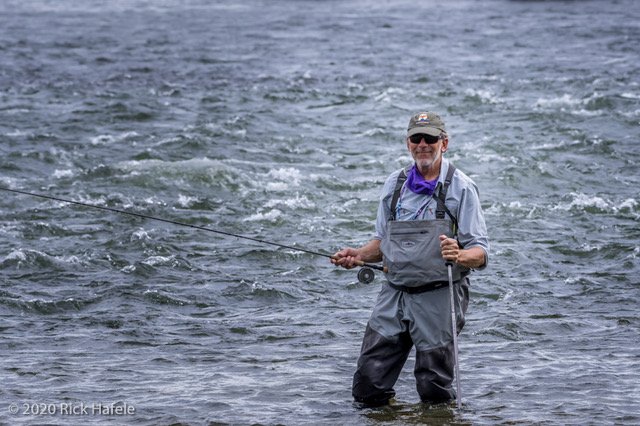Deschutes Musings
I got my start fishing as a kid, seining for shiners on an Ozark stream. They were great bait for small mouth bass. Then, at 14, I caught my first planted rainbow trout in a spring creek, also in the Ozarks. I was never the same after that trout. It started a lifelong obsession pursuing wild trout in cold, clean waters.
When I caught my first steelhead on the Deschutes in 1983, things changed for me again. I fell in love with the river and fished, floated, camped, and basked in the soul-rejuvenating wonders that was the Deschutes for the next 37 years. I still do. However, those wonders have recently changed for me again. And they’ve changed for the Deschutes.



The predictable swarms of caddis around the lantern in the evening are fewer. The frequent rises of trout gorging themselves on hatching insects are encountered less often. Fewer swallows, bats, and nighthawks ply the evening sky overhead. There’s a general sense of reduced natural fecundity along the river. And while I suspect my age contributes somewhat to a more difficult time wading, the abundance of slippery, algae-smothered rocks on the stream bottom leaves no doubt that things on the river have changed for the worse. And now, there’s solid science to explain this recent downturn in the health of the river.
Aldo Leopold, the grandfather of modern-day conservation, said in the foreword to his famous book, A Sand County Almanac, “There are some who can live without wild things, and some who cannot.” One doesn’t have to consider that statement very hard to realize the impact of the negative changes we’re facing on the Deschutes, in our country, and on our planet. And the majority of the time, the major threat to the wild and natural is from the poorly contrived and poorly monitored activity of humans.
Of course, no one wants more global warming. Everyone wants healthy forests, clean rivers and thriving economies. But these things have to be fought for. There’s a saying about making a difference when faced with such large issues: think globally, act locally. For me, fighting the degradation of the water quality on the Deschutes is a local action that will make such a difference. The fish and aquatic insects will benefit. The birds and bats will benefit. We all will benefit.
That’s why I am honored to support the DRA’s efforts to ensure clean, cool water on the Deschutes. I’m hoping that you’ll join me in donating to the DRA, knowing that you’ll be making a difference, fighting for something that is simply right. Let’s do this!
Written by DRA Board Member John Schwartz
Check out an original song by John - Talkin Lukes Reintroduction Blues can be viewed on the DRA YouTube channel.
The Deschutes River Alliance relies on support from folks like you to continue our work. Donate today!
